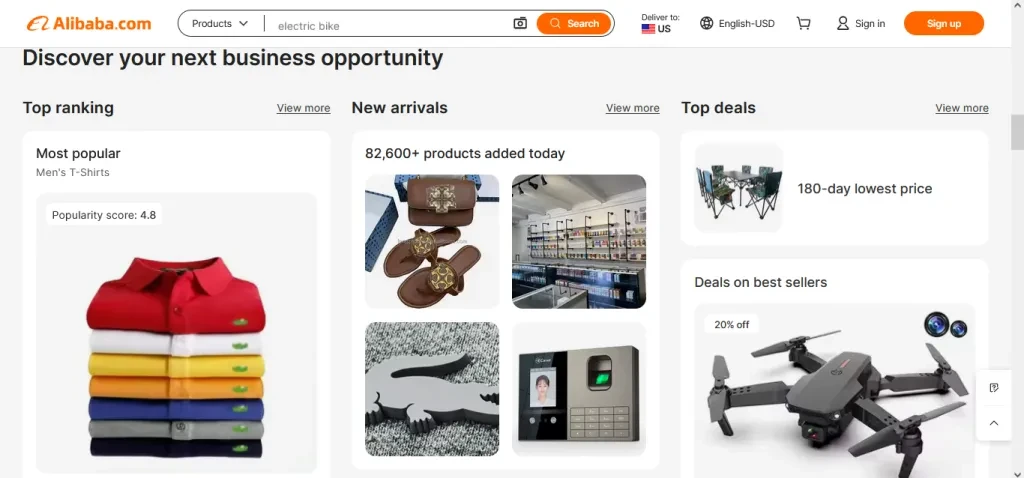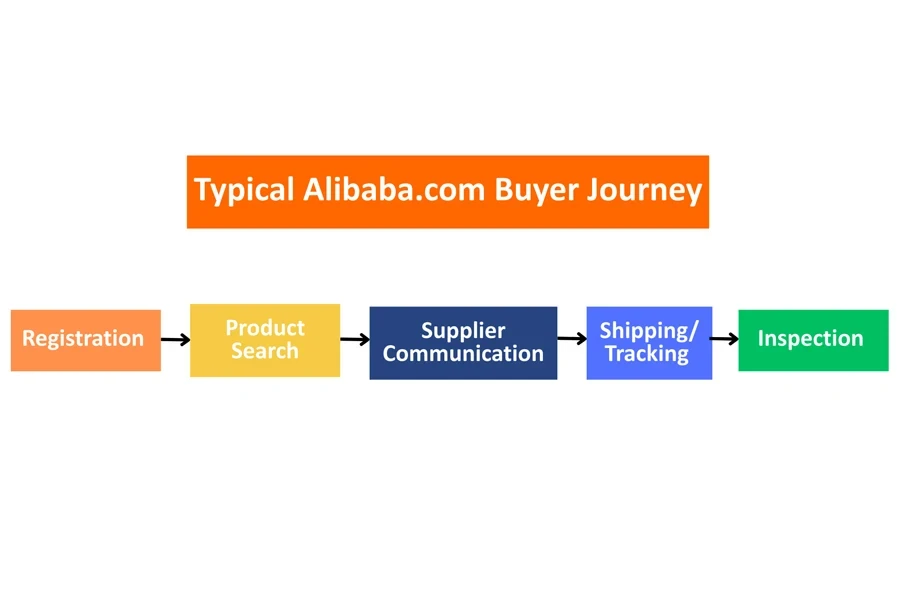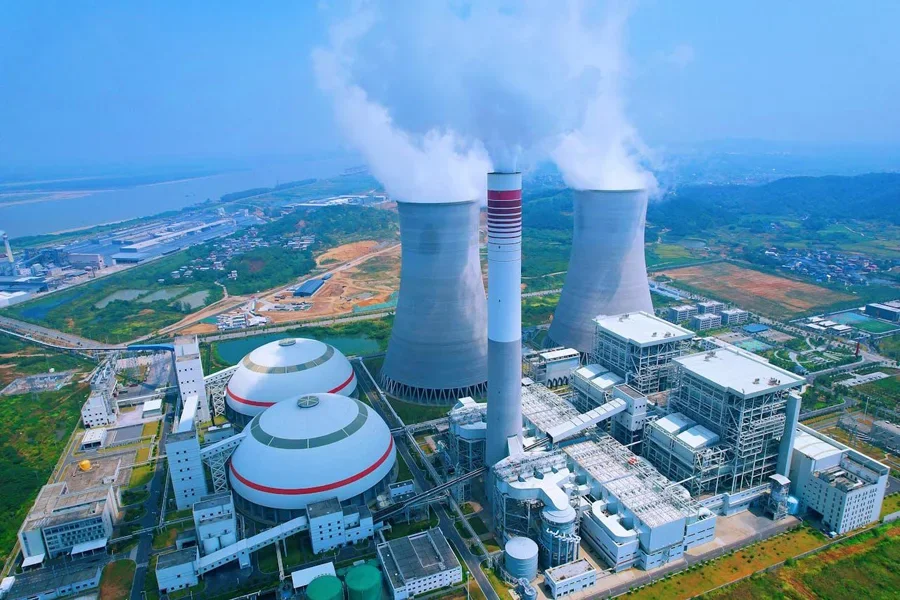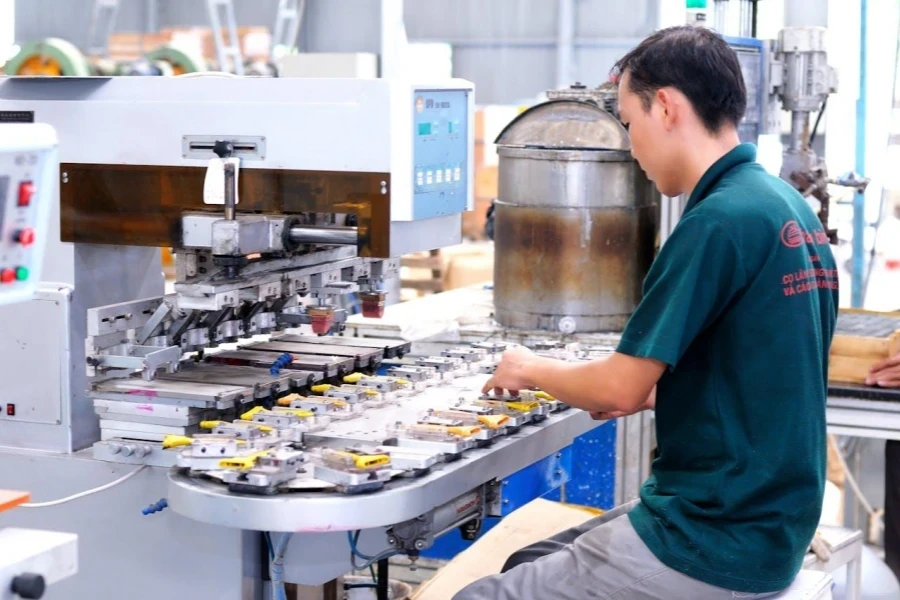On B2B online marketplaces, low wholesale prices are often possible if some specific terms or conditions are met. With calculated judgment and proper due diligence, these deals can indeed be highly rewarding.
Find out why Alibaba.com is so cheap, how it works, its product quality considerations, and the potential for securing even lower prices over time in the following sections.
Table of Contents
1. How Alibaba.com works
2. Why is Alibaba.com so cheap?
3. Is Alibaba’s product quality up to standard?
4. Can long-term B2B relationships get even lower prices?
5. Where cheap still means quality
How Alibaba.com works

In order to fully understand the reasons behind the surprisinglylow prices of products on Alibaba.com, it’s important to first understand how it works before taking a closer look at the secrets behind these low-price offers. In a nutshell, Alibaba.com is a wholesaler haven that bridges buyers to worldwide suppliers such as trading companies and manufacturers.
Functioning as a specialized B2B online marketplace hub, Alibaba.com does not offer any own-brand products but focuses on enabling manufacturers and wholesalers to list items for global B2B buyers. Customers on Alibaba.com are commercial buyers who commonly require large volumes for bulk discounts rather than ordering single units, even though purchasing single units on Alibaba.com is also possible in practice.
Since bulk offer discounts mean that the bigger the orders, the lower the per-unit cost, it also signifies that the offers on Alibaba.com often come with MOQs (minimum order quantity) requirements to support the bulk ordering context. Buyers, especially anyone new to the platform and the wholesale world, should keep an eye on such MOQ conditions and be ready to get the terms negotiated to gain the most from the deal.
Regular and clear communication and negotiation with suppliers are normally part of the must-go-through processes on the Alibaba.com platform, as unlike other standard ecommerce spaces, there’s no single “buy now” button on Alibaba. Purchases aren’t made with a single click but with room for communication and negotiation with the suppliers. In fact, such a communication and negotiation process is vital in B2B transactions, placing emphasis on long-term trust and relationship building.

As shown in the step-by-step flowchart above, the standard buying process on the platform usually involves joining Alibaba.com by registering for a new buyer account, finding suitable products, then reaching out to the suppliers to establish contact and negotiation, finalizing payment for shipment and monitoring shipping before finally inspecting the goods on arrival.
While buyers are encouraged to source from vendors bearing the “Verified Supplier” badge or similar markers on the platform, it’s still essential to request samples or test orders to scrutinize each supplier thoroughly prior to confirming any large orders.
Why is Alibaba.com so cheap?
Direct manufacturer access with economies of scale

It’s clear by now that Alibaba.com is a platform intended for B2B engagement, particularly for commercial buyers to connect with qualified manufacturers and wholesalers. To put things into perspective, let’s look at the average markup percentage on top of the wholesale prices provided by manufacturers or suppliers to retailers for some popular consumer products.
Health and beauty products, for example, reportedly have an average 132% markup, whereas candies and clothes are cited as carrying a 100% markup, with some clothing items marked up to 300%. By calculating these average percentages in reverse, it becomes evident how competitive the wholesale or direct-from-manufacturer pricing can be.
Simultaneously, it also highlights how significant such wholesale-level profit margins are for retailers when ordering in bulk from factories directly, bypassing all other middle distributors or intermediaries. All these enable lower per-unit costs, which helps to reduce the overall final prices.
In the meantime, here’s the kicker that makes these wholesale prices even more appealing: the combined power of MOQs, as manufacturers can capitalize on the economies of scale through mass production, resulting in lower costs per unit as output increases. This volume-based efficiency translates to substantial discounts on larger quantities. Eventually, the more a buyer orders, the more a supplier can lower the unit price, thereby fully maximizing the B2B “wholesale” advantage by linking buyers straight to producers.
Low-cost manufacturing with integrated industrial and supply chains

As per the official supplier countries list on Alibaba.com, most of them come from Asia, which constitutes more than half of the total. Furthermore, within these Asian countries, those from East Asia and Southeast Asia are the most numerous, including countries like China, India, Malaysia, Thailand, and Vietnam.
These countries have one thing in common: overall low-cost manufacturing environments, not only with low labor costs but also lower operation costs, such as lower overhead expenses for electricity, factory, and office space rental. The fact that many of these countries come with rich raw materials and resources also allows most factories there to enjoy lower material costs, further strengthening their cost advantages. In essence, all these lead to reduced production expenses, allowing sellers to offer more competitive prices.
Another geographical advantage demonstrated by these manufacturing countries is the reality that they often come with lower currency exchange rates, especially when compared to the major buyers in Europe and North America. This exchange rate advantage instantly makes their goods more budget-friendly and affordable in international markets.
From a supply chain perspective, the geographic closeness between these countries also allows easier access to local resources and reduces transport distances. As a result, logistical overhead can drop significantly as production cycles become faster and cheaper. In effect, these well-established supply hubs represent lower price offers for bulk buyers.
To top it off, the deeply integrated industrial chains within the Alibaba.com platform are made possible by a connected ecosystem that supports the full journey from raw materials to finished goods through a comprehensive industrial chain. This setup allows buyers to source from interconnected Alibaba suppliers at every production stage.
Ultimately, buyers can use Alibaba’s built-in logistics and payment services within a one-stop sourcing environment for all different sourcing stages. With fewer intermediaries and more direct coordination, buyers often benefit from lower overall costs and a faster, smoother purchasing experience.
Competitive supply dynamics

With more than 200,000 suppliers offering over 200 million products on Alibaba.com, it’s an understatement to simply call it a crowded marketplace– it’s indeed a very fiercely competitive ecosystem. The incidental byproduct of such general competitive dynamics on the platform is the overall marketplace’s efficiency, materialized through robust seller rivalry driving prices down and streamlined shipping arrangements.
Thousands of suppliers on Alibaba compete aggressively for buyer attention every day. Some deliberately lower their profit margins or offer “sample” prices to stand out in search results in order to secure new clients. Almost everyone tries to undercut others by offering low per-unit pricing with MOQs to win big-volume orders.
The natural end result of such an intense landscape turns out to be a much reduced overall landed cost for buyers since there is not only fierce competition among sellers but also pressure for competitive shipping options.
Meanwhile, through competitive agreements with transport providers within Alibaba’s ecosystem, the freight costs for Alibaba customers can be significantly lowered as bulk shipping rates and special carrier agreements cut down overall costs, making the final delivery costs even more competitive.
Overall, Alibaba’s logistics partnerships, warehousing services (such as Cainiao), and built-in payment protections help minimize costly delays, third-party fees, and transactional risks — all of which enable suppliers to offer more competitive pricing.
Is Alibaba’s product quality up to standard?

In reality, no online marketplace can offer an absolute guarantee on the quality of all its product listings, just as no matchmaking company can fully vouch for the character of every dating candidate, nor can a ride-hailing app assure the attitude of its drivers at all times. Consequently, the answer to the question, “Is the product quality on Alibaba.com good?” is not entirely straightforward.
At the same time, unlike matchmaking platforms or ride-hailing services, which can hardly conduct thorough character checks or exercise control over individual behaviors, Alibaba does invest heavily in platform security across the marketplace and launches multiple protective features for B2B buyers to help assess the quality and reliability of suppliers.
For example, the Trade Assurance program helps protect buyers if shipments are delayed or if product quality does not meet contract standards. The Verified Suppliers and Verified Pro Supplier programs also serve as the other two KEY initiatives that help to identify trustworthy suppliers.
So far, as reflected in various reviews, most suppliers on the platform are pretty solid and dependable, even with the vast range of sellers and products available. In fact, given the sheer volume of suppliers and listings on Alibaba.com, it’s no surprise that product quality can vary from one supplier to another.

It’s hence certainly safer for buyers to take a cautious approach when it comes to supplier dealings, whether using protective measures offered by the platform or not, for example, by researching more thoroughly to confirm if the supplier is a legitimate factory or wholesaler, not simply just a listing. Another direct and clear-cut way is to check out the reviews and ratings of the suppliers, since in most cases, buyer feedback and transaction history serve as a solid indicator of a supplier’s reliability.
Meanwhile, since in our current AI-photo-app-proliferated world, any display pic may easily be a display trick instead, product photos or even videos themselves can no longer be totally relied on. So the ultimate solution is to request samples, at least a small test run to ensure that items match expectations in materials and craftsmanship. Aside from potential deceptive visual listings, one more red flag is those who claim to deal in extremely low-priced branded goods; they are often a strong counterfeit warning sign, as luxury goods hardly offer any wholesale discounts, even when they have excessive unsold stock.
Can long-term B2B relationships get even lower prices?

Just like how most stable, trust-based, mutually beneficial long-term relationships are often proven to be rewarding, the simple and direct answer to whether a long-term B2B relationship with suppliers on Alibaba.com can lead to even better, lower offers is a positive “Yes.”
So, the next, more pressing question should be: How can B2B buyers build stronger supplier relationships to secure better long-term deals? The foundation lies in developing a relationship built on mutual trust and commitment that benefits both sides over time.
Naturally, numbers speak louder in business. So the most effective way to reinforce trust-building elements is to reward suppliers with consistent, gradually increasing orders, along with clear communication about future purchasing intentions to further motivate them to offer improved deals.
The good news is that one can keep the options open by approaching multiple different suppliers, comparing pricing, and leveraging the competition to boost bargaining power. With a stable and well-established relationship in place, one can then confidently negotiate or request lower rates or extra perks, but of course, with moderation as the key, since it’s important not to push too far but instead negotiate through professional dialogue and genuine engagement.
Where cheap still means quality

Alibaba.com is the leading international B2B wholesale online marketplace that connects buyers with global manufacturers and wholesalers. Buyers can search for almost any type of products and relevant suppliers from Alibaba.com’s more than 200 million products and build relationships with the suppliers directly to negotiate for the best deals with the lowest possible MOQs.
Direct access to manufacturers and factories that leverage economies of scale helps to lower overall per-unit cost on Alibaba.com, on top of having suppliers based in low-cost manufacturing environments. The integrated industrial and supply chains further help the suppliers to lower their overall production costs, enabling more competitive offers — a rare space where cheap still means quality.
Competitive shipping and logistics arrangements serve as another factor that helps reduce the overall costs for Alibaba customers, as suppliers are able to offer better rates thanks to bulk shipping and special carrier agreements that cut down their costs. While buyers can mostly find good-quality quality cheap products on Alibaba.com, they should take precautions to check out the background, reviews, and ratings of the selected suppliers, and request samples to confirm the product quality prior to bulk order commitment.
Through mutually beneficial and trust-based long-term supplier relationships, buyers can negotiate better deals with wholesalers and manufacturers to boost their savings. For more wholesale sourcing knowledge, business ideas, and logistics insights, visit Alibaba.com Reads regularly. The next business inspiration and opportunity could be just around the corner, waiting to be discovered anytime!



